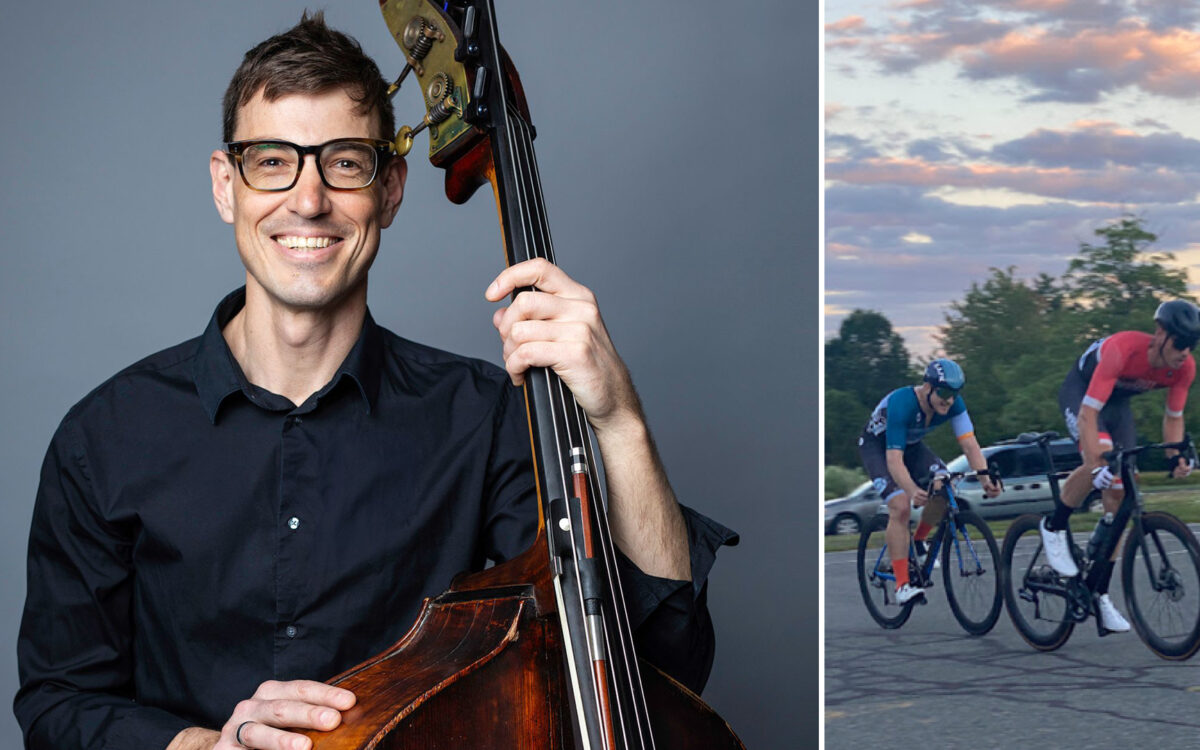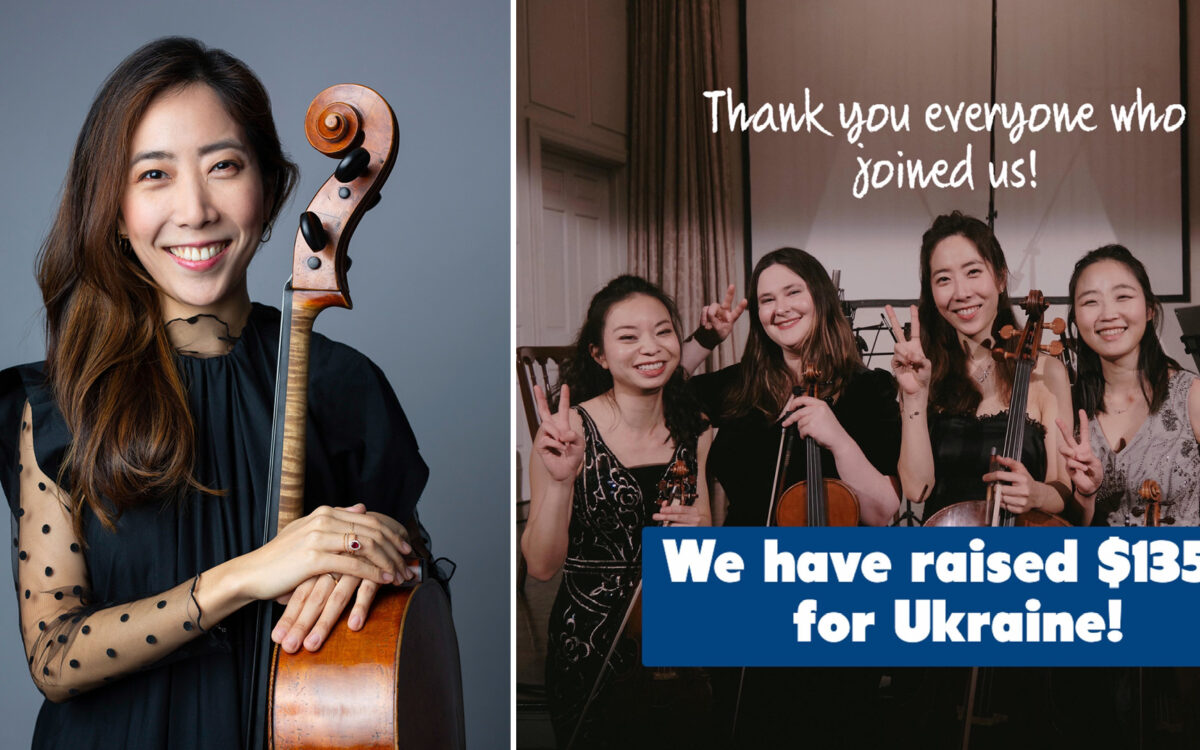So, What's it Like to Play in the BSO? The Challenges and Opportunities of the BSO’s Resident Fellowship
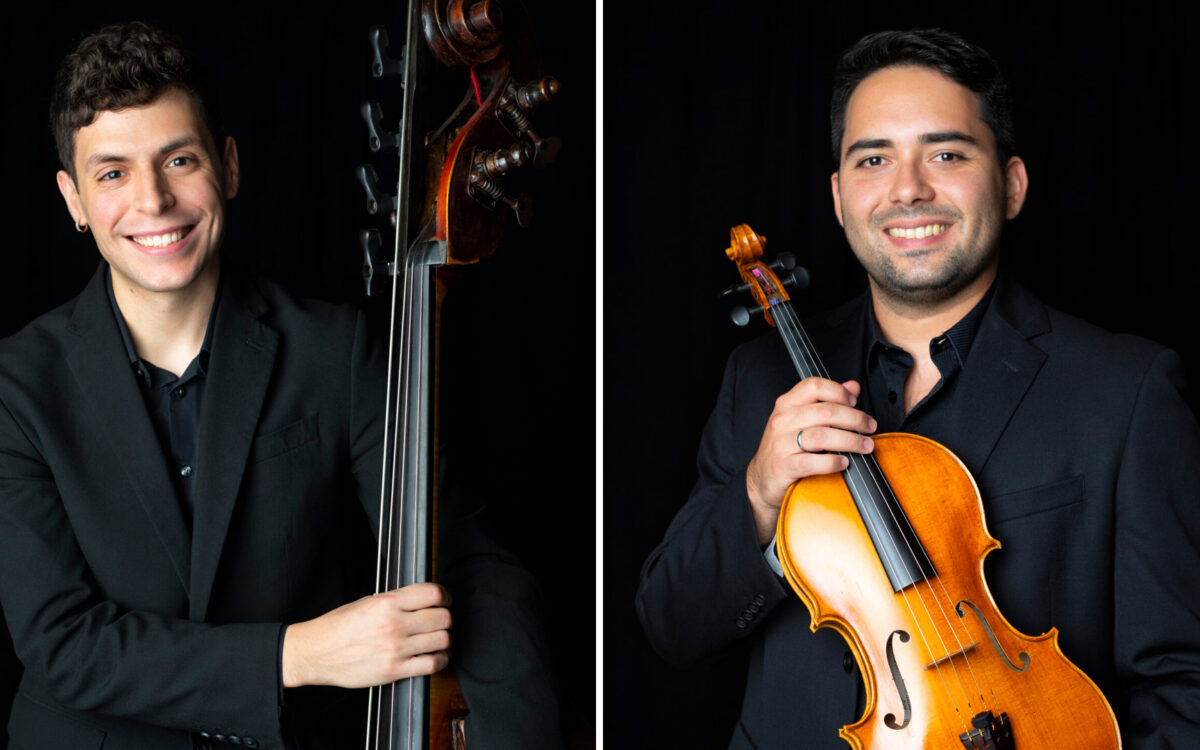
Violist Leonardo Vásquez Chacón didn’t give his first proper recital until he was an undergraduate studying music at Indiana University. Coming from Lima, Peru with non-musical parents and a small classical music scene, Vásquez Chacón got one year into medical school before he realized he could turn his love of viola into a serious career. While studying at a huge school like Indiana, he found was often one of the only Hispanic people in his classes. “I think I can count on my fingers how many people were Hispanic,” he said. “Of the people I personally met, there must have been, like, ten or 16 people max.”
Similarly, bassist Andres Vela grew up in a border town in Texas to Mexican parents. After undergrad in his hometown where almost everyone had some connection to Mexico, he moved on to do his master’s degree at Rice University and faced a big cultural shift. “The majority of people were either white or Asian,” he said. “I was the only Hispanic person in the bass studio.”
As part of the BSO’s efforts to open new avenues for people from backgrounds that have traditionally been underrepresented in classical music, in 2022 the orchestra founded the Susan W. and Stephen D. Paine Resident Fellowship program. The program offers one year of unparalleled training opportunities for early-career aspiring orchestra musicians from minoritized communities.
During their tenure with the BSO, Vela and Vásquez Chacón shared their thoughts about what it's been like pursuing classical music these days, what they've learned playing with the orchestra, and where they hope the fellowship goes from here.
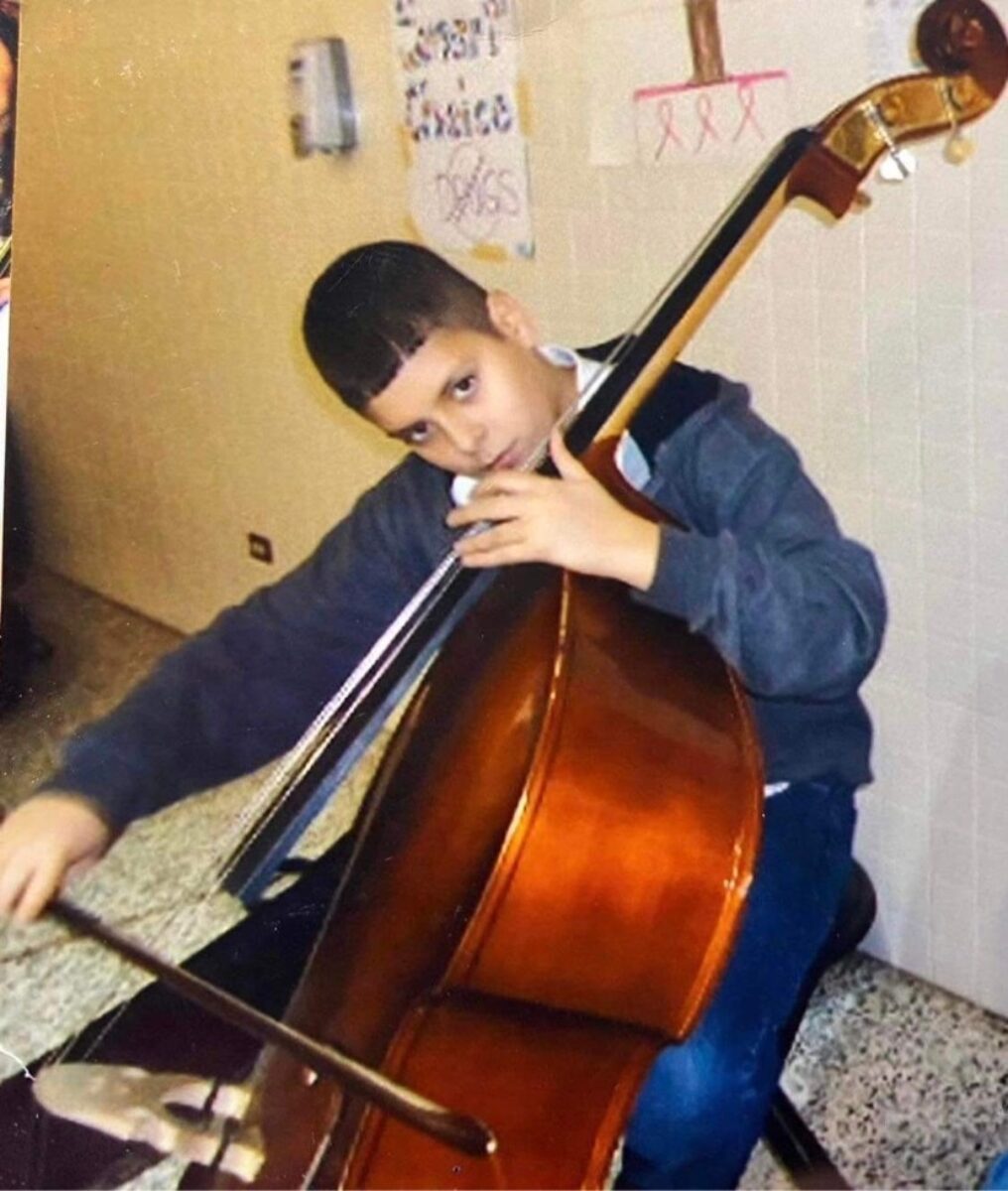
When did you hear about this fellowship? What made you want to apply?
Vela: I was in my last semester of grad school at Rice University. In your last semester, your parents, your family, everybody's like, “What's next? What's next?” And I had no clue. I put together a list of things that I wanted to be a part of. I heard about this fellowship in January or February of 2022 through my teacher, so I put it on my list. I sent my prescreening tape. More than a month later, I found out I got invited to go to the live audition, which took place in late April. I had taken a few other auditions and, you know, nothing worked out. This was actually the last thing on the list.
Vásquez Chacón: I was finishing this pre-professional orchestral program in New York called The Orchestra Now. I was also dealing with – “what am I going to do now?” I was getting married. I was working on my green card. One of my best friends told me this fellowship was happening for the first time, which was amazing to hear because I did have a connection with the orchestra; my teacher from undergrad and my master’s used to play in the BSO, and I was a Tanglewood Fellow in 2016 and 2017. So, hearing about this fellowship was kind of like, there's no way I'm not at least trying. This is such an amazing opportunity with one of the best orchestras in the world.
I also think just the fact that I had to change career paths, followed by all the effort it took to get ready to go to Indiana, it made it impossible for me to look back. It's really what I wanted. As I was going through my undergrad and master's, I would always remember that back in those days, all I wanted was to be where I've now ended up. So even though I moved away from medical school, this is still the best outcome for me. Before I felt like I was totally in the wrong place.
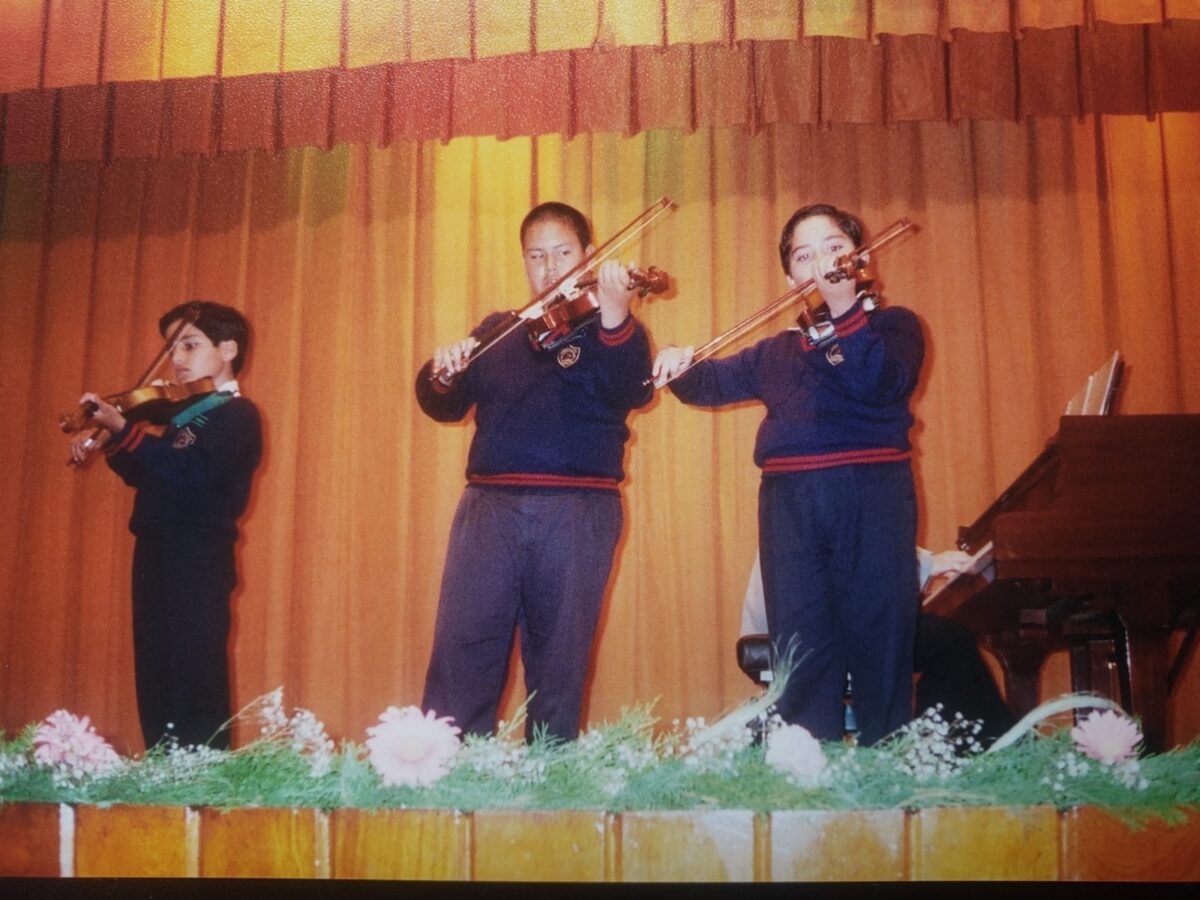
What drove you to pursue classical music, even despite the difficulty of the industry and being one the few people of a Hispanic background around?
Vela: The pure joy of getting to experience music was more than enough to drive me to pursue a career in it. I enjoyed learning, collaborating, networking, and traveling to new places. Growing up where I did didn’t always make it easy to do these things, but you keep going knowing eventually there will be better times and moments down the road.
Vásquez Chacón: When I joined the fellowship, I think someone in the orchestra told me, “Oh, you're the first Spanish speaker in the orchestra.” Which is crazy. Changing this would bring the BSO closer to a big community in the city of Boston. Whenever I work with younger kids interested in music who are Hispanic or Latino, there is sometimes a little bit of a disconnect. Some of these families don't speak English at all. The logistics of music ends up creating these divides. Whenever I’ve been in the position to be a bridge between those communities and the BSO, it's been really nice. My whole life I’ve had to explain musical things to mostly non-musical people, either my family or my friends. It’s really nice that the BSO has a program to start working on that.
Do you think there's more that could be done to bring people of different backgrounds into classical music?
Vela: More could always be done, but if more people from different backgrounds were simply encouraged and somehow given the support they needed, that alone I think would go a long way to show them that this career path is like any other, and that if they so wish to pursue a career in it that they can succeed just like anybody else.
Vásquez Chacón: For things to change, it has to start at the beginning of a person's life. With this fellowship, I get a chance to connect with families and their kids. They can start feeling represented in the classical music field and makes them feel that they also have a chance. Classical music shouldn't feel foreign to them.

Since getting the fellowship, what do you feel like you've learned and what do you feel like it's done for you as a musician?
Vela: Two of the biggest things I’ve learned through this experience is how important it is to try to sound like one, and how to listen. As a musician in the orchestra, we always aim to blend our sounds together to make beautiful music, as well as make sure what role our parts play within the orchestra.
Vásquez Chacón: This fellowship with the BSO is something unique and precious. I wasn't able to study music seriously when I was a kid, but now this program has really gone above and beyond whatever I would have studied back then. It's been insanely helpful, and I definitely am a better way better musician than I was two years ago.
I've learned so much from the players, from [Music Director] Andris [Nelsons], from seeing the management work that happens in the background. It's really interesting to feel immersed in the industry of a symphony orchestra and to play for so many of the section members. Being able to play with them so often lets you develop because they have their own way of playing. They know exactly when the next beat is going to come. There’s a connection with Andris and with the music. Being able to see that dynamic -- you can only really learn it on the job, in rehearsals, and in the concerts. There’s no other place where I could have learned that skill.
What else should people know about the fellowship?
Vela: I would definitely encourage people to apply. You work closely with the members of the orchestra, and you build really nice connections with a lot of these people. At the end of the day, they want to see you be a better version of yourself. They will be there to listen to you, and to help you get to that next step.
Vásquez Chacón: It’s more than you can imagine. The whole program is always trying to help us with what we need and wants to see us succeed. They've always been available for us with any resources that we needed. They've always been available for us any resources that we needed, any problems that came up, they were always happy to help us. It's a great place to be and it's only been beneficial to my career.
Maya Shwayder is the BSO's Senior Contributing Editor and Copywriter.

